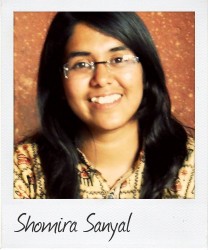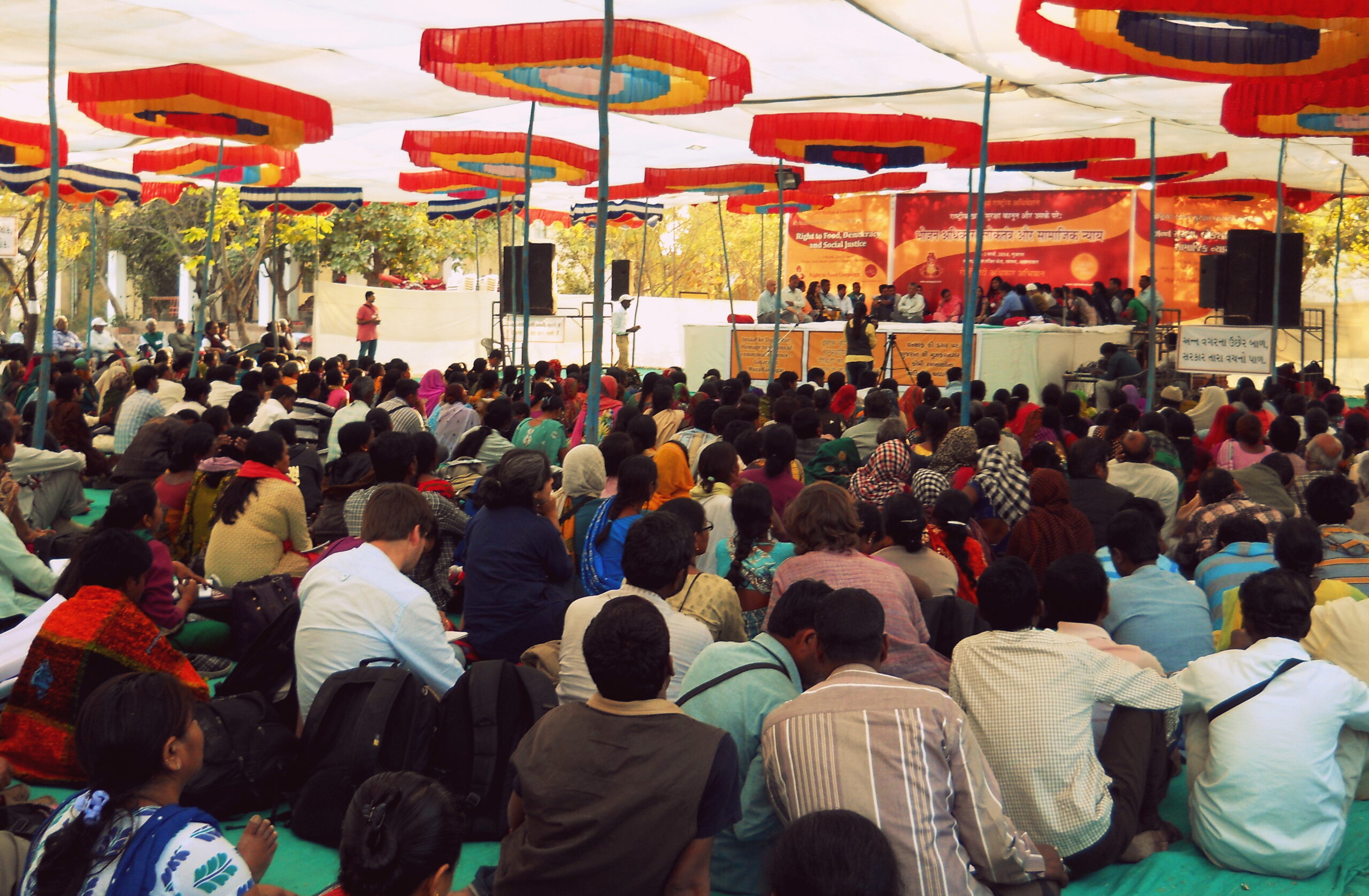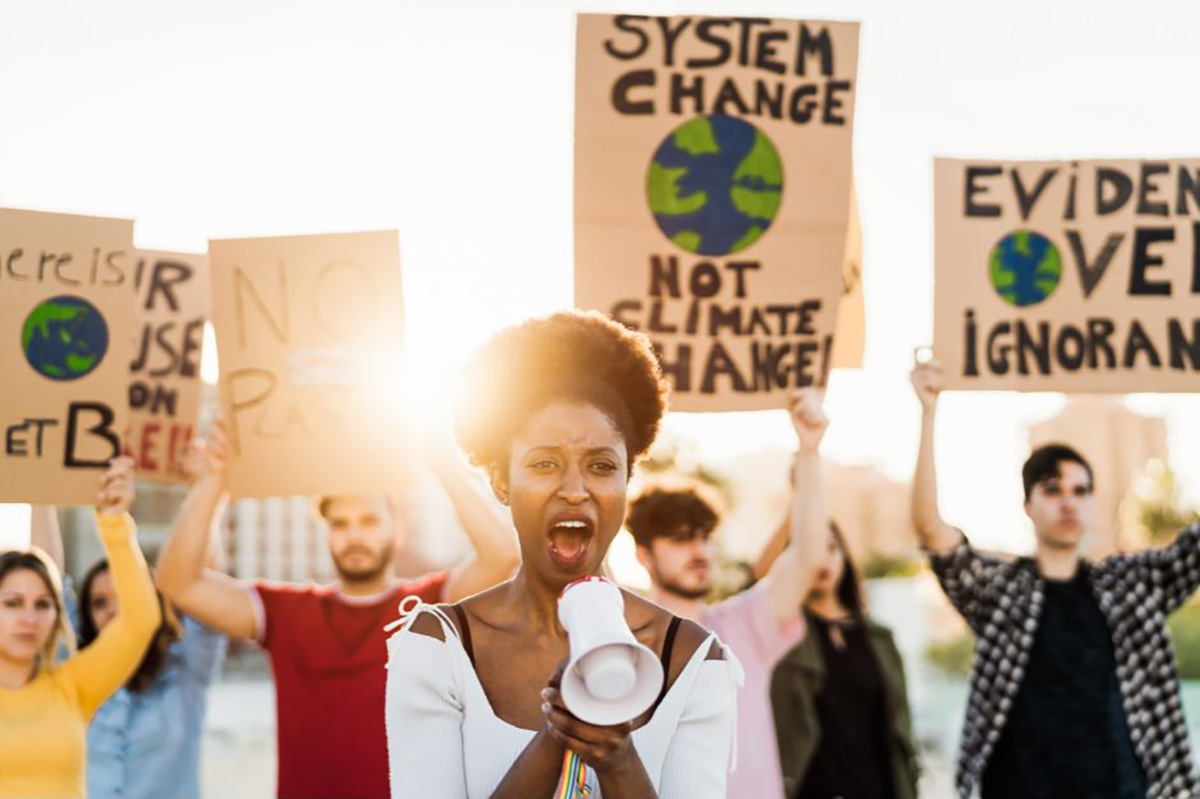"Food for thought – provide everyone with ration"
March 19th, 2014 The Right to Food and Work Convention is an inspiring display of grass roots activism, writes Shomira Sanyal, 20, a Commonwealth Correspondent from New Delhi in India, who volunteered at the event that focuses on solving hunger in India.
The Right to Food and Work Convention is an inspiring display of grass roots activism, writes Shomira Sanyal, 20, a Commonwealth Correspondent from New Delhi in India, who volunteered at the event that focuses on solving hunger in India.
Powerful slogans rang out at the fifth National Convention on the Right to Food and Work, held in Sanand (Gujarat) in March. The theme was “National Food Security Act (NFSA) and Beyond: Right to Food, Democracy and Social Justice”.
The demand for the Right to Food in India formally began in 2001, when the People’s Union for Civil Liberties (PUCL) filed a petition in the Supreme Court of India. The basic demand was to provide the millions of hungry and malnourished with food, and to strengthen the existing systems in light of the fact that the godowns of the Food Corporation of India were fully stocked with grains, which would have been wasted without being entirely distributed.
Many protests, consistent agitation, and Right to Food Conventions later, the National Food Security Bill 2013 was implemented in September last year. While many have been highly critical of the Bill, which aims to provide subsidized food to 75 per cent of India’s rural and 50 per cent of its urban population, there are others who are hopeful this will be beneficial for the millions who go to bed hungry. The Bill includes in its ambit the Public Distribution System (PDS), the Mid-Day Meal Scheme (MDM) and the Integrated Child Development Services (ICDS), among other provisions.
The first convention took place in Bhopal in 2004, followed by the Badu Convention in 2005, the Bodhgaya Convention in 2007 and then the Rourkela Convention in 2010. Over the years, the number of civil society organisations and other groups participating in these conventions has been steadily increasing. This year’s convention saw more than 2000 people from over 17 states of the country attending. The Conventions have always been marked by numerous sessions on a range of issues, supplemented by workshops. They have been a meeting point for people from all across the country to discuss, debate and engage with each other regarding common as well as diverse issues, and to pave a path forward and decide their next course of action.
This year’s Convention saw newer topics of discussion being introduced. Some of these included: ‘Beyond NFSA: From Food Security to Food Sovereignty’, ‘Unpacking Nutrition: Commercialisation, Food Diversity and Malnutrition’, ‘Implementation as Empowerment: Governance and Grievance Redressal in NFSA, NREGA and NSAP’, and ‘Insaaf ke Dagar Par: Homage to victims of communal violence- Gujarat to Muzzaffarnagar’. Prominent activists like Kavita Srivastava, Jean Dreze, Harsh Mander, Shankar Singh, Ashim Roy, Madhuri Krishnaswamy, Dr. Vandana Prasad, Shiraz Bulsara, and Ulka Mahajan spoke at the Convention. New insights were looked at and discussed, and people from different regions expressed their opinions on the functioning of the schemes in their respective areas, and what the NFSA means for them now.
While panel discussions took up most of the day, time was also allocated for workshops, with about 40 conducted over the course of two days. While some of these included forest rights, agriculture, women’s unpaid labour, changing land use, nutrition and health, community media and democratic media, others included construction workers acts, right to food for fisher folk, tribal communities, the disabled and in conflict areas, global trade rules, and minority issues to name a few. Each workshop was well attended and highly informative. Apart from these, there were events like movie screenings, exhibitions, performances and stalls of different organisations selling books and indigenous items from their regions. Husband and wife duo Vinay and Charul, who are known for their songs that have given voice to many social movements in India, presented their new song, ‘Hum Log, We The People’. Even the new website for the Campaign was officially launched. New networks also joined the Campaign, and there was participation by citizens of Nepal, Afghanistan and other countries as well.
The final day saw the entire entourage undertaking a ‘truck yatra’ (journey) to Ahmedabad, where the Ahmedabad Declaration was presented, which includes the demands of the Right to Food Campaign and the further action they wish to take in the coming years. Considering the current political climate in the country, there was indeed a clear political tone to the demands of the activist groups, who were critical of the existing scenario and models of ‘development’. It was interesting to note how people’s active participation in the functioning of democracy could also become an important political tool.
All said and done, the Convention was an excellent forum for learning about the grass roots work taking place in the country. I was deeply inspired hearing all the speakers and looking at the struggles they have gone through in these past many years. Volunteering and rapporteuring at the event also gave me the opportunity to interact with people from remote corners of the country, who are doing exceptional work for the betterment of the people and the society, and many who risk their lives every day in their commitment to ensure the same. The event was a vibrant and engaging one, and reinforced one’s belief in working towards ideal ends and a better world where all mouths will be fed, where stomachs will be filled, where equality will prevail and where people will live a life of dignity.
Photo: Shomira Sanyal
………………………………………………………………………………………………………………
About me:
I am pursuing a Bachelor’s Degree in Sociology at Lady Shri Ram College, New Delhi. I enjoy reading, travelling and meeting people. I have deep interest in developmental work that will improve the lives of India’s marginalized, and have worked in rural India with NGOs and movements on the Right to Information, the Right to Food, the Public Distribution System, and the Mahatma Gandhi National Rural Employment Guarantee Scheme. I believe in the Gandhian saying, “Be the change you want to see”.
………………………………………………………………………………………………………………
Opinions expressed in this article are those of the author and do not necessarily represent the views of the Commonwealth Youth Programme. Articles are published in a spirit of dialogue, respect and understanding. If you disagree, why not submit a response?
To learn more about becoming a Commonwealth Correspondent please visit:
http://www.yourcommonwealth.org/submit-articles/commonwealthcorrespondents/
………………………………………………………………………………………………………………




